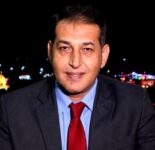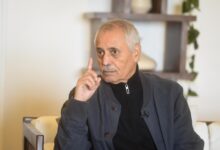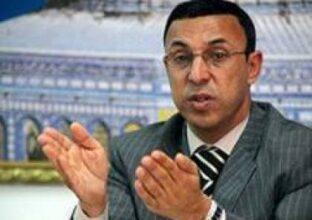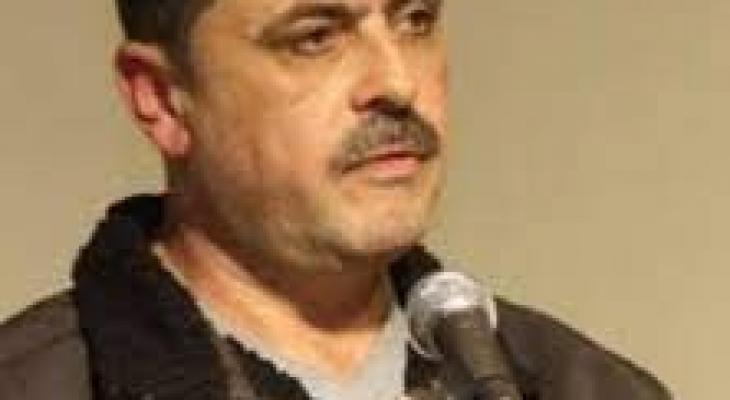Trump plan: chance to stop genocide
Al-Khamisa News Network - Gaza
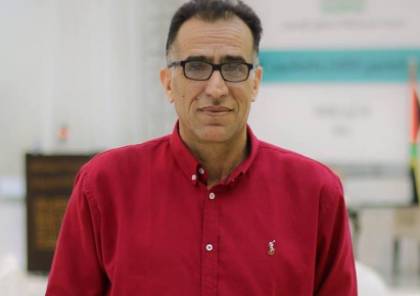
Mustafa Ibrahim
There is near-Palestinian consensus that the US–Israeli plan on the Gaza Strip and ending the war is extortion and a scheme to liquidate the Palestinian cause.
Strangely, however, most of the voices calling for its rejection come from outside the Gaza Strip, which has paid and continues to pay the price in blood, in lives and property, and in the loss of family members and children. They are the ones bearing the blood-debt and have the right to make the decision.
Despite the shock that accompanied the announcement of the US–Israeli plan, a realistic reading forces us to examine not only what was said but what can be achieved on the ground, and what can be built politically and nationally, without falling into the trap of surrender or denial.
After two years of a campaign of annihilation on Gaza, in which tens of thousands were killed and wounded, entire cities were wiped out, and siege and starvation were tightened, Palestinians find themselves facing an international plan that at least promises a ceasefire and a return to life, while at the same time containing many problems and pressures.
Yet amid all this there is a positive point that must not be underestimated: the plan guarantees an immediate ceasefire, the delivery of urgent humanitarian aid, the securing of Palestinians’ presence in the Gaza Strip, and the prevention of the mass displacement scenario long promoted by the Israeli right. This space granted for people to remain on their land is not a trivial detail but an actual rescue of Gaza’s identity and of the Palestinian people’s right to live on their land. It is a historic moment in which a ceasefire can, despite everything surrounding it, become a starting point to test Palestinians’ ability to rebuild, to restore life, and to cling to their rights.
Stop the displacement first, then we continue the journey
No one denies that the provisions of the plan favor Israel and carry the imprint of political and security diktats. But reality is more complex than can be reduced to a simple “yes” or “no.”
Stopping forced displacement and preventing the ongoing extermination must be national and humanitarian priorities. Preserving the Palestinian presence in Gaza is in itself a fundamental pillar for keeping the Palestinian cause alive and open, not closed by a document imposed by force. Accepting a ceasefire does not mean accepting the liquidation of the cause; it can be a tactical decision to protect people and hold on to the land, while continuing the political and diplomatic struggle to reject other clauses that diminish rights.
It is important to remember that keeping people in what remains of their homes, property and land is a real victory against projects of emptying, replacement and displacement. If the war truly stops, Gaza will face a major national task: rebuilding life, repairing dignity, and reclaiming a minimum of hope. The delivery of aid and the partial opening of crossings can make a tangible difference in people’s lives and give Palestinian society a chance to catch its breath after years of siege and destruction, to rebuild itself politically, economically and socially.
This phase may also be an opportunity to rethink the management of Gaza in a more efficient and participatory way, away from divisions and factional conflicts, under an agreed national umbrella.
It is not enough for criticism and rejection to be limited to slogans and media outrage from outside Gaza; Palestinians in the diaspora and Arabs who are shouting today against the plan must direct their anger toward their governments and institutions. The plan seeks, at its core, to drain and weaken any capacity for political and social resistance to endure, and therefore the duty requires concrete actions: sustained protests in front of embassies and parliaments, pressure on ruling parties, media and legal campaigns, and a halt to economic and political cooperation with those who contribute to the liquidation of rights.
Resistance is not limited to armed struggle; it is also civil and diplomatic — keeping the cause alive and embarrassing those who support policies of displacement and liquidation. The people of Gaza have the right to voice their rejection of this plan, and we have the right to strengthen their position through our actions in our capitals and societies, rather than limit ourselves to mere denunciation.
The plan must not be treated as a political savior, nor accepted as a permanent solution. Justice for the Palestinian cause will not be achieved through submission, nor through projects that absolve Israel of its responsibilities and crimes. At the same time, we must not let our old fears and feelings of anger drive us to an absolute rejection that offers no alternative.
Stopping the killing and saving what remains of Palestinian society in Gaza is a political and moral duty; it does not mean surrender, but rather a reordering of priorities. Without the people there is no resistance, no struggle, and no national project. Without land, there is no cause. Without a ceasefire, there is no future.
Plans are imposed when political weight is absent, the Arab voice is weakened, and the Palestinian house is divided. But the Palestinian people possess the experience and knowledge to turn the ordeal into an opportunity. If the killing stops, the massacres cease, and people remain on their land in Gaza, Palestinians will have saved what can be saved at this stage. From there another battle begins: the battle of reconstruction, consolidation, and preparing for future political rounds with greater awareness and strength. The plan contains many mines, but it may also open a small gap in the wall of blood; we must know how to widen it and restore people’s right to life before asking them to resume the struggle.

